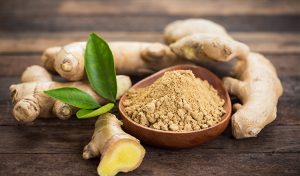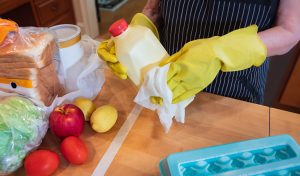The World Health Organization has marked May 31st as World No Tobacco Day. Tobacco kills nearly 8 million people worldwide every year. And yet, people continue to consume tobacco in some form. Even though the number of users has fallen in the last 20 years, an estimated 1.337 billion people still use tobacco in the world.
Of all the different tobacco-associated diseases that WHO and international governments have warned us against, a new infection has been added to that list. That disease is COVID-19!
What is this association between coronavirus and tobacco all about? Read on to know more.
A growing volume of evidence collected by the WHO says that if you are a tobacco user, your chances of contracting COVID-19 are higher than a non-user. Smoking and direct tobacco usage can make symptoms of COVID-19 far worse.
The WHO has found that when long-time tobacco users are infected with coronavirus, they are more likely to require
They also develop other health complications associated with COVID-19 that can even turn severe
Smoking or chewing tobacco harms the respiratory system. Tobacco can-
Moreover, people with weakened respiratory systems are also susceptible to
All these diseases are comorbid conditions of COVID-19 and can make it severe. The virus that causes COVID-19 also primarily targets the respiratory system. If the system is already weakened, the effect of COVID-19 can be more dangerous.
Tobacco also damages the cardiovascular system and is likely to give you
These cardiovascular conditions too are risk factors of COVID-19 and can make its recovery more difficult.
At present, all of us are adopting precautions to keep our families and ourselves safe from COVID-19.
But are you doing enough? Are you a smoker who frequently puffs on a cigarette? Now that you are home due to lockdown, you could be exposing your loved ones to the effects of second-hand smoking. Exposure to tobacco fumes can do as much damage to the lungs, arteries, and heart as direct consumption of tobacco. So, in a way, you are making your family and yourself vulnerable.
So, alongside social distancing and washing hands frequently, adopt one more precautionary measure. Quit smoking. Don’t chew tobacco. Tobacco weakens your body in many ways, and this is the time when we should be focusing on keeping our bodies as strong as possible.
First things first, accept that you are addicted to tobacco. Until you admit that there is a problem, you will not be able to resolve it.
You will also have to understand the dangers that tobacco poses, not just to yourself but to your loved ones as well. Do you want to be responsible for them becoming infected? Wouldn’t you do everything you can to keep them safe
If you have been smoking for a long time, it’s not easy to stop suddenly. So practise mindfulness techniques like meditating daily to keep your mind calm. This will help control the urge to smoke.
Now, you must make up your mind not to purchase tobacco products. Do not stockpile tobacco. When you go out to buy necessities, try to avoid stores that sell cigarettes or tobacco products to avoid temptation.
Dispose of all packets of existing tobacco products you have in the house to avoid temptation. If there are other smokers in the family, ask them to do the same.
If the urge to smoke is very strong, you can use sugar-free chewing gums to beat the urge. It has been seen that chewing gum keeps your mind occupied and reduces the urge to smoke.
Kick the deadly habit of tobacco consumption to keep you and your loved ones safe. Stop smoking now and emerge a healthier and fitter person at the end of the lockdown.
Disclaimer: The information provided here is for educational/awareness purposes only and is not intended to be a substitute for medical treatment by a healthcare professional and should not be relied upon to diagnose or treat any medical condition. The reader should consult a registered medical practitioner to determine the appropriateness of the information and before consuming any medication. PharmEasy does not provide any guarantee or warranty (express or implied) regarding the accuracy, adequacy, completeness, legality, reliability or usefulness of the information; and disclaims any liability arising thereof.
Links and product recommendations in the information provided here are advertisements of third-party products available on the website. PharmEasy does not make any representation on the accuracy or suitability of such products/services. Advertisements do not influence the editorial decisions or content. The information in this blog is subject to change without notice. The authors and administrators reserve the right to modify, add, or remove content without notification. It is your responsibility to review this disclaimer regularly for any changes.
The lockdown implemented to enforce social distancing and contain the spread of COVID-19 will possibly be eased gradually. At present, many restrictions are already being eased all over the country. However, this has led to an increase in the number of cases in India. Experts fear that there might be a second wave of COVID-19 arriving soon.
A second wave means a surge in the number of COVID-19 cases after there has been a decline. It has already happened in China, where cluster infection has been reported recently even after weeks of no new diagnosed cases. It is possible that other countries including India will also witness a similar trajectory.
It is difficult to pinpoint exactly when the second wave will arrive. But epidemiologists and healthcare professionals feel it will happen in the July-August period.
As the lockdown is slowly being relaxed, people have started going out. All economic activities are resuming. More and more people will be joining their workplace. Shopping centres and shops will open, and thousands will flock to the stores to make essential and non-essential purchases. Movie theatres and malls, if opened, too will attract crowds. People have been confined for so long that they will want to meet with their acquaintances and friends.

If the lockdown is eased further, we can assume that for the whole of June, people will be mingling with each other. Some of these people might be infected and will pass on the coronavirus to those they come in contact with.
Going by this trend, new people will start getting infected during June, and fresh cases will be reported from the end of June or July onwards. The second wave is very likely to happen.
Studies have shown that previous infection was highly protective against reinfection with alpha, beta and delta variants, but less so against omicron, BA. 1. A previous infection provided moderate protection from reinfection with omicron BA. 1 (45%), compared with stronger protection against pre-omicron variants (82%).
Dr. Ashish Bajaj – M.B.B.S, M.D.
It is not possible to confirm if the second wave will arrive or not, so it is best to be prepared. The government and the citizens have to be extremely cautious. What we do now will decide how dangerously the second wave will be.
1. Maintain social distancing when you go out.
2. Do not go out unless necessary, even after the lockdown is lifted.
3. If you are going back to the office, use hand sanitisers, hand wash and face masks all the time.

4. Do not gather in groups anywhere, including the office.
5. Keep your workstation disinfected.
6. Do not shake hands with clients.
7. Opt for e-conferences.
8. Continue to work from home wherever possible.
9. Wash your clothes and disinfect your office bag after coming home, don’t let others come in contact with your stuff.
10. Continue following certain lockdown measures like cleaning up groceries, fruits, vegetables, food packets, etc.
11. Eat healthily and keep exercising to boost immunity.
Governments (both State and Union) are doing the following –
Only by being cautious can we keep our loved ones and ourselves safe from the second wave.
Remember, step out only when necessary to stay protected at all times.
Disclaimer: The information provided here is for educational/awareness purposes only and is not intended to be a substitute for medical treatment by a healthcare professional and should not be relied upon to diagnose or treat any medical condition. The reader should consult a registered medical practitioner to determine the appropriateness of the information and before consuming any medication. PharmEasy does not provide any guarantee or warranty (express or implied) regarding the accuracy, adequacy, completeness, legality, reliability or usefulness of the information; and disclaims any liability arising thereof.
Links and product recommendations in the information provided here are advertisements of third-party products available on the website. PharmEasy does not make any representation on the accuracy or suitability of such products/services. Advertisements do not influence the editorial decisions or content. The information in this blog is subject to change without notice. The authors and administrators reserve the right to modify, add, or remove content without notification. It is your responsibility to review this disclaimer regularly for any changes.
The news about the COVID-19 pandemic is everywhere: from the front pages of newspapers and headlines on news channels, to even our daily conversations at our homes. Constant exposure to such updates can leave us overwhelmed. Children especially can begin to feel increasingly anxious and confused since their daily routines have been completely disrupted due to the current state of lockdown.
So, how can parents help their kids manage their fears, while at the same time be aware and alert themselves? As a parent or guardian, you will want to make sure that your children get answers to all their questions and doubts regarding coronavirus. Speaking to them can help clear their doubts, help them understand what is happening as well as make them feel safe and cope with the current situation.
Most children have already heard about COVID-19 from TV as well as seen people wearing face masks. Therefore, not talking to them will make them even more confused. Ask them what they’ve heard about coronavirus and if they have any questions or doubts regarding this. This will help you understand how much they know as well as if they have any wrong information.
Explain things to them in a calm and reassuring way. Don’t offer more information than what they ask about. If they ask something that you don’t know the answer to, let them know about it. If they require information (especially older children), help them get access to age-appropriate content so that they don’t end up watching the news which scares them.
Teach children that following good habits like regularly washing their hands, covering their mouth and nose while sneezing and coughing, eating healthy food, getting proper sleep can help them stay in good health and even help in avoiding the spread of the infection to others.

Watching news such as the number of infected cases or even the death rates worldwide can frighten children. Younger children may feel reassured if you let them know that doctors and nurses in hospitals are treating and taking care of people who get sick. Older children may also feel comforted by knowing that scientists and researchers are working on a vaccine for COVID-19. Watch the news with your children so that you are aware and can filter what kind of information they are obtaining.
Children tend to worry more about their family and friends than themselves. If they hear that older adults are more likely to fall sick, they may get worried about their grandparents. Help them call or video call their grandparents and relatives to reassure them that they are in good health. Helping them connect virtually with their friends will make them feel a sense of normalcy.
Children might feel anxious and upset due to the lockdown and the fact that they have to be constantly indoors. Remind them that it is alright to be upset right now and encourage a hopeful outlook for the future.
Stick to or create new family routines, such as learning or studying, mealtimes, chores, playtimes and bedtimes. This can help children feel in control of the situation.
There may be times of constant news about COVID-19 from all types of media that may heighten fears about the disease. Limit reading, hearing or watching the news. Also, limit social media use that may expose your children to rumours and false information. Be cautious about discussing the news and your fears in front of your children.
Connect with friends and family members using the phone and video calls. This can help them avoid feeling isolated and can build and maintain relationships.

If you observe persistent problems with your child’s sleep patterns, eating habits or difficulty concentrating on typical tasks, or if your children have a persistent sense of hopelessness, excessive sadness or overwhelming worry, contact your doctor for advice.
It is important to continue having open communication with your family. If your child is afraid or anxious, you don’t want them to keep it to themselves. While we don’t know when these stressful times will end, we can definitely offer comfort and reassurance to our children, discuss factual information and encourage a healthy dialogue about their feelings.
Disclaimer: The information provided here is for educational/awareness purposes only and is not intended to be a substitute for medical treatment by a healthcare professional and should not be relied upon to diagnose or treat any medical condition. The reader should consult a registered medical practitioner to determine the appropriateness of the information and before consuming any medication. PharmEasy does not provide any guarantee or warranty (express or implied) regarding the accuracy, adequacy, completeness, legality, reliability or usefulness of the information; and disclaims any liability arising thereof.
Links and product recommendations in the information provided here are advertisements of third-party products available on the website. PharmEasy does not make any representation on the accuracy or suitability of such products/services. Advertisements do not influence the editorial decisions or content. The information in this blog is subject to change without notice. The authors and administrators reserve the right to modify, add, or remove content without notification. It is your responsibility to review this disclaimer regularly for any changes.
Given the current situation, we know that the best exit to the COVID 19 crisis is through a vaccine. So, the question on every individual’s mind is – When will the coronavirus vaccine be ready? The pandemic that struck the world in December 2019 and has already killed more than 319,000 people. Almost 4.81 million people are infected globally.
We are all living in a state of anxiety and uncertainty. We can’t even go out for the fear of catching the infection and infecting our families. At this stage, the only thing that can restore our lives to normalcy is a vaccine.
So, when will the vaccine be available?
The global community has realized that we need a vaccine that will teach our immune system to recognize the coronavirus (if it enters our bodies) and create antibodies that will destroy the viruses. This is how everyone can become immune to this deadly infection.
To that effect, countries have created task forces that are conducting extensive research into studying the biology of the virus and coming up with a vaccine.

The race against coronavirus is breakneck and we have already made much progress-
1. Scientists in Seattle announced in March that they would start human trials soon. They have skipped animal trials and will be proceeding right on to testing on humans.
2. Virologists in Australia have formulated two tentative vaccines, which they are trying out on ferrets right now. Human trials began in late April.
3. GSK and Sanofi, the global pharmaceutical giants and rivals are joining hands to pool resources and create a vaccine.
4. In the USA, Bill Gates is funding 7 separate lines of research and all of them are making significant headway.
5. In Europe, the first human trial is underway in Oxford, England with 800 volunteers. Half of them will be administered a COVID-19 vaccine and the remaining will be injected with a special vaccine that prevents meningitis.

6. China, where the pandemic originated, has deployed 1000 scientists to produce a vaccine. The academy of military Medical Sciences has claimed that it has developed a vaccine and is enlisting volunteers to test the vaccine. A Chinese company has also paid $133 million to purchase stakes of the German pharmaceutical company BioNTech to help it develop a vaccine.
7. Europe too is at the forefront of research. All European countries fund the Coalition for Epidemic Preparedness Initiatives, which is currently spearheading the research with 8 potential vaccines.
India’s very own Cipla is trying to develop a drug that is effective against coronavirus. It believes that the required drug can be a combination of HIV, anti-flu and anti-respiratory illness drugs.
The Serum Institute of India is working on a $100 million budget and has come up with a vaccine that has already been tried on animals. They have sought permission for conducting human trials.
Scientists across the world are positive that the vaccine will be developed by the end of this year and distributed globally. This is the time for international collaboration because the fate of humanity is at stake.
After a long time, the whole world is united to get the vaccine ready as quickly as possible. And until the vaccine becomes available, follow social distancing and personal hygiene measures to keep you and your loved ones safe.
The last few weeks have not been easy for anyone. All of us have been in lockdown, away from many of our loved ones and unable to carry on with our usual routine.
It has been difficult for us too! Although medicines are classified as ‘essential commodities’, movement restrictions have triggered a supply and manpower shortfall. So even as your orders began to pour in, the ban on interstate movement of goods made delivering your orders to your doorstep challenging for us.
We are doing so while ensuring our consumers, as well as employees to remain completely safe.
The measures taken to prevent the spread of COVID-19 hit us all hard. The lockdown has been enforced to save lives. And despite all inconveniences, just like you, we too have been functioning to the best of our ability within these restrictions.
Since India has been making progress in the war against COVID-19, both the Union and State governments have decided to gradually lift lockdown restrictions in phases depending on how well the regions have been able to contain the spread of the infection. So, you might be wondering how that will impact our operations. So we will give you a brief description of our current status-
We are glad to share that currently, we are operational in 90%+ pin codes in India. And we aim to be 100% operational very soon.
We appreciate how you have placed your trust with us. So, we request you to continue to be patient. All restrictions are not yet lifted. So there might be some disruptions and the deliveries may be slightly delayed. We are doing everything possible to eliminate such delays and ensure you have a smooth buying experience with us.
These are difficult and uncertain times. You, our customers, are of paramount importance to us. Our aim is to make all medicines and healthcare products accessible to everyone.
We can’t abandon you when you need us the most! Your health is our responsibility. And we will continue to serve you through difficult times and regular times, no matter how many challenges arise.
So stay safe and shop from home with PharmEasy!
Wondering how to boost your immunity against COVID-19? Well as you know, a strong immune system could be the perfect solution to tackle COVID-19! So the next question that arises is, how do you boost your immunity in a way that doesn’t harm your body? Simple! Switch to the miraculous solutions that Ayurveda provides!
This ancient medical science had stated long ago that plant extracts could do a lot to strengthen the body. According to Ayurveda, our body can withstand infections only when all the seven layers of our body’s tissues (Rasa, Mamsa, Rakta, Medha, Majja, Asthi and Shukra) are strong. When the seven layers are working together, our immunity will be boosted.
And what do the layers need to stay healthy? Ojas. It is a subtle and invisible essence of your body tissues that keep you healthy. Ayurveda has said that certain plants and plant products can build ojas to empower our immunity.
Did you know?
Make a point to consume one or more of the following every day during lockdown-
A ‘well-fed’ immune system is extremely important to ensure it performs the function of protecting against viral offence. Various nutrients and minerals play a vital role in maintaining the integrity and function of the immune system. Among the various nutrients and minerals, vitamin C, vitamin D and zinc stand out for having immune-modulatory functions, which are demonstrated in a substantial body of evidence.
Dr. M.G. Kartheeka, MBBS MD(Pediatrics)
Moringa is a herb that can help ward off many health complications. And during the COVID-19 pandemic, it should be your go-to herb for immunity strengthening.
So what makes moringa such a powerful immunity booster? The Vitamin C content of moringa is more than that of oranges. Vitamin C is one of the chief nutrients that our bodies need towards building a strong immunity.
That’s not all, moringa also contains some other vital nutrients that strengthen your cells, muscles, tissues and help your body heal. Consume moringa for its high levels of potassium, iron, calcium and amino acids.
Read More: 16 Health Benefits of Moringa
Since time immemorial, neem has been respected and widely used as an immunity booster. It is very effective in keeping the body safe from attacks by harmful pathogens, thanks to its anti-viral, anti-bacterial and anti-fungal properties.
Neem can also keep your blood clean. It purifies the blood by flushing away toxins and this can strengthen immunity.

Tulsi is another wonder herb that is much favoured by Ayurveda. Tulsi or basil is a powerful germicide. Because of its phytochemicals and antioxidants, it can help locate germs, viruses and bacteria the moment they enter your body and destroy them.
Simply chew a few leaves first thing in the morning. You can also add a few drops of water boiled with tulsi leaves into your food.
Read More: 11 Health Benefits of Tulsi
Ashwagandha is an adaptogen, which means it can decrease stress levels. Stress lowers your immune response and makes the body vulnerable to viral infections. Consume ashwagandha during this pandemic which helps reduce the risk of contracting the coronavirus infection.
Triphala contains the antioxidative properties of three fruits- haritaki, bibhitaki and amla. It is loaded with Vitamin C and Vitamin A- both of which strengthen your immunity. Start your day with Triphala.
Ginger has been an age-old remedy for flu and the common cold. It may help against viruses like COVID-19. It contains gingerol – an antioxidant that can power up our immune system and kill viruses. Ginger is particularly good in preventing respiratory tract infections. Add ginger to your meals or you can also have it raw.
Also Read: Zincovit Multivitamin Tablets

Just like ginger, garlic too may help you stay protected from coronavirus by stimulating your immunity. It contains allicin- a plant compound that acts as a germicide. But remember, to make the most of the benefits of garlic, consume it raw or partially cooked.
Read More: 10 Health Benefits of Garlic
Every time your grandmother said you need to consume turmeric for your health, she was right. Turmeric contains curcumin– a phytochemical that can help remove toxins from your body and strengthen your immune system to fight off germs and bacteria. Add an extra dash of turmeric to your meals or consume it with milk.
Read More: 10 Health Benefits of Turmeric
Black cumin extracts can help you keep safe from a range of viruses and bacteria that attack your immune system. Both black cumin seeds and oil act as antioxidants and help flush out free radicals that weaken your immunity.
Another great alternative to build a strong immune system is the Everherb Immunity Boosters! The things you need to improve your immunity are all within your reach. Consume these and stay home to help beat coronavirus!

Disclaimer: The information provided here is for educational/awareness purposes only and is not intended to be a substitute for medical treatment by a healthcare professional and should not be relied upon to diagnose or treat any medical condition. The reader should consult a registered medical practitioner to determine the appropriateness of the information and before consuming any medication. PharmEasy does not provide any guarantee or warranty (express or implied) regarding the accuracy, adequacy, completeness, legality, reliability or usefulness of the information; and disclaims any liability arising thereof.
Links and product recommendations in the information provided here are advertisements of third-party products available on the website. PharmEasy does not make any representation on the accuracy or suitability of such products/services. Advertisements do not influence the editorial decisions or content. The information in this blog is subject to change without notice. The authors and administrators reserve the right to modify, add, or remove content without notification. It is your responsibility to review this disclaimer regularly for any changes.
In these uncertain times, you could find yourself anxious, stressed, and nervous about the future. Researchers have observed that large-scale disasters such as pandemics, tend to cause an increase in mental health issues such as depression, substance abuse, and behavioral disorders.
The regular news of the current COVID-19 pandemic, with its vast number of infected cases as well as casualties, is mentally affecting more people each day.
Lockdowns have been imposed by certain countries including India to contain the spread of the virus. Long durations of being indoors lead to feelings of restlessness, annoyance, financial pressures, isolation, boredom and disinterest.
These feelings are completely natural and reasonable and reflect our want for survival. That said, it is important to keep in mind that although worry is normal, panic can prevent us from being rational/logical, which are skills we need at times of such difficulty.
We are constantly exposed to extensive information about COVID-19 through the news, social media, and discussions with family and friends. Constant exposure to such news creates negative effects such as feelings of anxiety, fear and stress. Take measures to ensure that you are away from receiving and spreading rumours and false information. Follow reliable news resources. Avoid watching the news all the time but stay updated regarding the guidelines and precautions advised by the Ministry of Health and local public health authorities.
The lockdown has allowed us to spend time with our families which was not possible earlier, because of our hectic lifestyle. However, spending too much time together also has its drawbacks. Irritation, anger and frustrations arise because we are restricted from going out. Try and plan fun and relaxing activities which the whole family can participate in, such as board games, movies, arts and crafts or even exercising. Children tend to get irritable since they cannot go out and play, so engage them in activities like games or involve them in household activities. This will help in keeping them occupied as well as ensure more helping hands for household chores.


If you still feel increasingly stressed and overwhelmed by the current COVID-19 pandemic situation and your mental health issues go on for days without getting better, you may contact COVID-19 national psycho-social toll-free number at 080-46110007 or consult your doctor or mental health professional.
Lupin has also launched a ‘Jan Kovid’ Helpline (1800-572-6130) for the citizens of Mumbai to resolve queries about COVID-19 and help those suffering from stress/anxiety. Backed by a team of general physicians, psychologists, respiratory physicians and psychiatrists, the helpline number will offer free consultation and respond to all queries related to COVID-19. The service is available in Marathi, Hindi, Gujarati and English, and will be operational all days from 8 am – 8 pm.
Incorporate these tips in your daily life to keep anxiety at bay and tide over the lockdown period. Above all, stay indoors to protect yourself.
Disclaimer: The information provided here is for educational/awareness purposes only and is not intended to be a substitute for medical treatment by a healthcare professional and should not be relied upon to diagnose or treat any medical condition. The reader should consult a registered medical practitioner to determine the appropriateness of the information and before consuming any medication. PharmEasy does not provide any guarantee or warranty (express or implied) regarding the accuracy, adequacy, completeness, legality, reliability or usefulness of the information; and disclaims any liability arising thereof.Links and product recommendations in the information provided here are advertisements of third-party products available on the website. PharmEasy does not make any representation on the accuracy or suitability of such products/services. Advertisements do not influence the editorial decisions or content. The information in this blog is subject to change without notice. The authors and administrators reserve the right to modify, add, or remove content without notification. It is your responsibility to review this disclaimer regularly for any changes.We are all confined within our homes to avoid exposure to COVID-19 and flatten the curve.
But what many people have not considered is the threat lockdown poses to your body weight. This is because you will largely be living a sedentary lifestyle inside your home during the lockdown.
We can’t go out except to buy essentials. That means, right now we are all having to follow a sedentary lifestyle. Our movements are constrained within the boundaries of our home.
Leading a sedentary life is one of the primary causes of weight gain.
Secondly, since we don’t have much to do, people are binge-watching TV shows every day and what is that one thing we do when we are watching our favourite shows? We eat unhealthy snacks. People also eat to fight off boredom.

So, inactivity and binge eating will make us gain weight during the lockdown. Once you start putting on weight, it can spiral. Soon you will be faced with health issues like diabetes and heart disorders.
But did you know that you can also easily keep your weight down during the lockdown?
Many people exercise outside. They work out in the gym or they like to go swimming, jogging, walking, cycling, etc. But since we have to maintain social distancing, you can’t go to gyms or parks to exercise.
So what should these people as well as people who never work out do? Well, improvise by working out without much equipment inside the house!
Many free hand exercises can prevent weight gain and help to lose weight. The exercises are –
A full-body exercise that will shed weight from all parts of the body and keep the bones strong.
Another cardio exercise that works out all parts of your body. They are also good for strengthening the muscles of the arms and legs.
Intersperse your rope jumps or burpees with squat jumps. They are good for your knees and keep the whole body flexible.
There are many cardio-based dance routines you can learn on YouTube. Besides, dancing is fun and entertaining too.
A great way to reduce belly weight.
Mix up the different cardio exercises. Do a single workout session for 20-30 minutes including all of these exercises. Do them at least 5 times a week.
Apart from exercising, try to stay active as much as possible inside the house by doing household chores.
Read More: 7 Health Benefits of Exercise
Exercise is effective but to enhance the benefits of exercise, you have to eat right.
Since you will not be burning many calories, you have to moderate your calorie consumption. Focus more on foods containing fibre and protein that keep you full for a long time such as pulse and fruits with their skin.
Choose multi-grains or whole-grain wheat and whole-grain brown or black rice. Whole grains keep your metabolism active.
Drink 8-10 glasses of water daily. Water suppresses appetite and speeds up metabolism as well.
Eat fresh vegetables as they give your body vital nutrients without adding unnecessary calories.

If you feel hungry between meals or want to munch on something while you watch Netflix, opt for-
Many people continue to gain weight despite exercising because they are eating too much. That is why doctors recommend eating three small meals. Make sure you don’t fill your tummy during a meal.
If you feel hungry later on, you can always eat a few healthy snacks.
A disciplined exercise routine and restraint when it comes to food can keep you in shape during the lockdown. Besides, healthy food and workout will also improve your immunity against COVID-19.
Above all, stay at home to protect yourself.
Disclaimer: The information provided here is for educational/awareness purposes only and is not intended to be a substitute for medical treatment by a healthcare professional and should not be relied upon to diagnose or treat any medical condition. The reader should consult a registered medical practitioner to determine the appropriateness of the information and before consuming any medication. PharmEasy does not provide any guarantee or warranty (express or implied) regarding the accuracy, adequacy, completeness, legality, reliability or usefulness of the information; and disclaims any liability arising thereof.
Links and product recommendations in the information provided here are advertisements of third-party products available on the website. PharmEasy does not make any representation on the accuracy or suitability of such products/services. Advertisements do not influence the editorial decisions or content. The information in this blog is subject to change without notice. The authors and administrators reserve the right to modify, add, or remove content without notification. It is your responsibility to review this disclaimer regularly for any changes.
Today more than ever, in these testing and changing times, we need to be more careful about how to manage asthma. The first Tuesday of every May is observed as World Asthma Day. This year on 5th May, countries across the world will spread awareness regarding this respiratory illness.
Currently, in India, 2% of the adult population and 6% of the child population are diagnosed with asthma and the number is increasing every year. With COVID-19 cases on the rise, many asthmatics are anxious about how it will impact them.
No, there isn’t a direct link that exists between the two. COVID-19 is a respiratory disorder caused by the coronavirus. It affects the respiratory apparatus in the body – nose, throat and lungs.
If an asthmatic person contracts COVID-19, then the person could suffer pneumonia, an asthma attack or other severe lung problems.
Although there is no evidence to show that having asthma increases your risk of contracting COVID-19, health experts have suggested that asthmatics will experience severe COVID-19 symptoms if they were to contract it. This is because COVID-19 leads to breathing troubles and asthmatics already have breathing difficulties.
Read More: 7 Breathing Exercises That Help Asthma Patients
Asthma is one of the existing illnesses that can make COVID-19 infection more severe. So if your loved one or you have asthma, manage it with extreme caution and don’t let there be flare-ups.
Many studies are suggesting that a recent coronavirus disease 2019 (COVID-19) infection may rarely cause new-onset asthma, which could be linked to eosinophilic inflammation. Clinicians should consider asthma in the differential diagnosis of subacute or chronic respiratory symptoms following COVID-19 infection.
Dr. M.G. Kartheeka, MBBS, MD(Pediatrics)
Asthmatic patients have to be very careful because many symptoms of COVID-19 and asthma are similar. Symptoms such as cough and breathing difficulties are common between the two disorders.
So when an asthmatic has breathing troubles, how can he or she determine if it’s an asthma attack or COVID-19?
One way to do that is to check your temperature. Studies have found that a large percentage of COVID-19 patients experience fever, it could be mild or high.
Respiratory infections like influenza (flu) and coronavirus disease 2019 (COVID-19) are more serious for individuals with asthma because they can lead to pneumonia and asthma attacks.
Dr. Ashish Bajaj, M.B.B.S., M.D. in Clinical Pharmacology and Toxicology
Take medications for your asthma as prescribed. Avoid going out and even if you do, then wear a mask. This will lower your chances of being exposed to the virus. Stock up on food and medication so that you don’t have to go out often to buy essentials.
A few other things you should do are
If there are sick people in the house, then you have to isolate yourself. Avoid going near them and disinfect common spaces regularly.
You can keep a peak flow meter with you and use it daily to measure the speed at which air comes out of your lungs. Note down the readings in a diary. This will help your doctor determine if the symptoms of asthma are worsening or they’re signs of COVID-19.
If you have asthma, take steps to prevent getting the flu. Flu virus infection can cause you to have an asthma attack. Flu vaccine may be given at the same time as other vaccines.
Dr. Ashish Bajaj , M.B.B.S., M.D. in Clinical Pharmacology and Toxicology
COVID-19 and asthma both cause damage to the respiratory system. So, take the necessary precautions and stay safe.
Also Read: 10 Effective Ways to Deal with Asthma At Home
Disclaimer: The information provided here is for educational/awareness purposes only and is not intended to be a substitute for medical treatment by a healthcare professional and should not be relied upon to diagnose or treat any medical condition. The reader should consult a registered medical practitioner to determine the appropriateness of the information and before consuming any medication. PharmEasy does not provide any guarantee or warranty (express or implied) regarding the accuracy, adequacy, completeness, legality, reliability or usefulness of the information; and disclaims any liability arising thereof.
Links and product recommendations in the information provided here are advertisements of third-party products available on the website. PharmEasy does not make any representation on the accuracy or suitability of such products/services. Advertisements do not influence the editorial decisions or content. The information in this blog is subject to change without notice. The authors and administrators reserve the right to modify, add, or remove content without notification. It is your responsibility to review this disclaimer regularly for any changes.
Ever since the coronavirus outbreak became a pandemic and began to infect thousands of people in India, we have become very wary of how we are conducting our lives. People are dutifully adopting all precautions to keep their families and themselves free from the clutches of COVID-19.
Because everyone is cautious, they have plenty of questions about how the virus spreads and one of the most frequently asked questions is, ”Can coronavirus spread through food?”
Read on to know whether the food you eat is safe.
Every time you go to the grocery store, the market or place online grocery orders to replenish your supply of foods, you might have wondered if you are bringing coronavirus home and risking the health of your family. The fear is rational. After all, we have all been advised to disinfect everything that comes in from outside.
So, what do experts have to say about it? According to WebMD, the World Health Organization and other healthcare experts, there is no evidence yet that COVID-19 can be transmitted through food.
Remember, experts have said that there is no evidence yet that food can spread coronavirus. So that does not conclusively prove that food and packages containing food are completely safe.

Epidemiologists and virologists have explained that there is a lot they don’t yet know about the novel coronavirus. Studies are ongoing to understand the nature of this virus. New facts may emerge at any moment. By their admission, experts are still to understand all the modes through which the virus spreads and infects people and what objects can be considered as threats.
So what is the good news? It is believed that foods are low risk and not very likely to give you or your loved ones the coronavirus infection.
Why? Centres for Disease Control and Prevention (CDC) has conclusively proved that the primary mode of transmission of COVID-19 is person-to-person contact.
When an infected person coughs or sneezes, the viruses are emitted from his/her body and enter the bodies of people who are in the vicinity. Globally, this is how most of the persons who contracted the infection got the virus in the first place.
The second reason why foods can be considered safe is that multiple regulations are enforced in our country to ensure that food is cooked and transported hygienically.
A worldwide effort to prevent other infectious diseases like cholera, diarrhoea, dysentery put in place rigorous hygienic standards that are implemented in all stages- from production, testing, packaging to supplying and delivering of food.
Even though foods are low-risk, should you abandon safety precautions? No, because scientists have discovered that coronavirus can survive on surfaces for up to 72 hours.
So if the people who unload foods from trucks and trains are sick or if your local vegetable seller and the grocery store owner are infected, then the virus could end up on the surface of the vegetables or food packets. Similarly, the person who delivers your grocery orders could leave traces of coronavirus on the package.
To eliminate all risks of getting COVID-19 from food, adopt a few simple precautions-

Even after the lockdown is lifted, avoid restaurants for two reasons-
At a critical time like this, we have to be extra careful. Clean all food items and stay home to avoid exposure to COVID-19.
Disclaimer: The information provided here is for educational/awareness purposes only and is not intended to be a substitute for medical treatment by a healthcare professional and should not be relied upon to diagnose or treat any medical condition. The reader should consult a registered medical practitioner to determine the appropriateness of the information and before consuming any medication. PharmEasy does not provide any guarantee or warranty (express or implied) regarding the accuracy, adequacy, completeness, legality, reliability or usefulness of the information; and disclaims any liability arising thereof.
Links and product recommendations in the information provided here are advertisements of third-party products available on the website. PharmEasy does not make any representation on the accuracy or suitability of such products/services. Advertisements do not influence the editorial decisions or content. The information in this blog is subject to change without notice. The authors and administrators reserve the right to modify, add, or remove content without notification. It is your responsibility to review this disclaimer regularly for any changes.
Next Page »« Previous Page